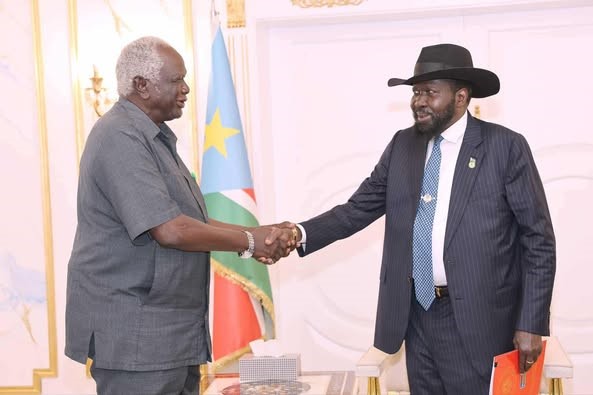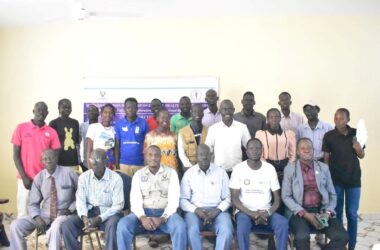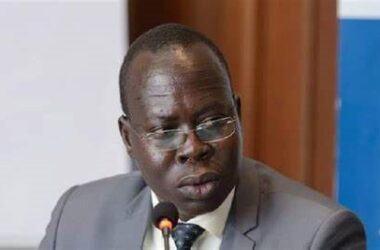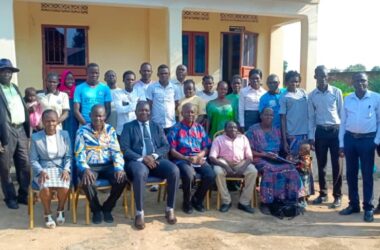By Yiep Joseph
President Salva Kiir on Friday directed the Minister of Finance to release the necessary funds for the electoral process.
The directive came after Prof. Abednego Akok Kachuol, Chairperson of the National Election Commission (NEC), briefed the President on the status of the elections scheduled for December 2026.
As part of the NEC’s engagement with the Revitalized Transitional Government of National Unity (R-TGoNU) on election preparation, Akok informed President Kiir about the achievements as well as challenges facing the institution.
As the country prepares for elections, the election commission remains focused on its mandate to conduct a transparent election.
According to the Office of the President, NEC chairperson revealed that the President has instructed the Minister of Finance and Planning to release the necessary funds for the electoral process.
“Prof. Akok said the President has instructed the Ministry of Finance to release funds for the electoral process,” the statement partly read.
The President also urged other institutions and security organs to support the commission in achieving its mandate of conducting elections in 2026 as scheduled.
The Chairperson of the Election Commission revealed plans for a meeting with primary stakeholders aimed at speeding up the processes.
“Prof. Akok added that a meeting with primary stakeholders will be held soon to review the latest initiatives aimed at expediting the electoral process,” the statement partly read. Akok urged the people of South Sudan to prepare for the upcoming elections, which will mark the conclusion of the transitional period.
He added that the Commission currently has fully equipped offices in six states, while construction is ongoing in the remaining states.
Recently, the Chairperson called for the release of funds to ease the work of the election commission.
In 2024, the institution estimated its budget for election activities at approximately $250 million, which can also be amended should demands arise.
While this figure has faced criticism, the commission believes it is justified given the scope of operations in the ten states and three administrative areas.
Last week, the National Election Commission (NEC) stated that the 2026 election depends on decisions from political parties regarding the permanent constitution and population census.
The parties to the 2018 peace agreement include the Sudan People’s Liberation Movement/Army–In Opposition (SPLM/A–IO), the South Sudan Opposition Alliance (SSOA), Former Detainees (FDs), and Other Political Parties (OPP).
After the detention of the First Vice President, the SPLM/A-IO, which is the major opposition party, has become divided, making it difficult for the parties to sit down and decide on the election.
As mandated by the Constitution and the National Elections Act of 2012 (as amended), the National Elections Commission (NEC) is solely responsible for conducting elections.
While addressing the media, Gabriel Bol Deng, Secretary of the National Election Commission (NEC), revealed that the decision on whether the country will hold elections in 2026 relies on the peace parties.
“NEC is ready to conduct elections in December 2026, but there are key decisions that need to be made. First, the political parties that form the unity government must delink the population census from the election. The census should not be a condition to hold elections; the elections are viable,” Bol said.
He added that according to the report from the South Sudan Bureau of Statistics, conducting a real census will take 14 months.




